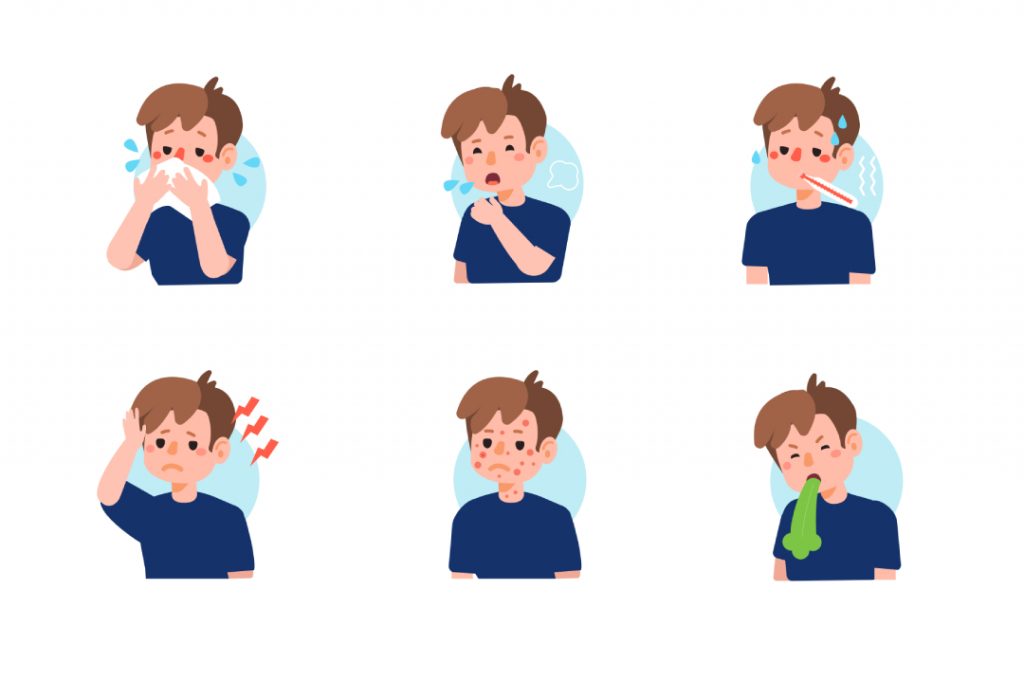Childhood illnesses may be a common concern for parents. While some illnesses are mild and temporary, they can still cause discomfort and disrupt a child’s routine. Recognizing common childhood illnesses, their causes, and symptoms can help parents make informed decisions about care and treatment. Here is more information on common illnesses affecting children and guidance on when seeing a pediatrician might be required:
Contents
What Are Common Childhood Illnesses?
Children frequently encounter a variety of illnesses as their immune systems learn to combat infections. Common conditions include colds, flu, ear infections, strep throat, and stomach viruses. Respiratory infections are especially prevalent due to exposure in schools and daycare centers. Skin conditions, such as rashes, eczema, or chickenpox, are also frequent in childhood and may result from allergies, viral infections, or environmental factors.
Other notable illnesses include hand, foot, and mouth disease, conjunctivitis (pink eye), and croup. While most cases can be managed at home, some conditions, like bronchiolitis or severe tonsillitis, may require closer attention and care from a pediatrician. Understanding the illnesses a child will most likely encounter can help parents prepare for and address these situations.
What Are the Causes and Symptoms of Illness?
Childhood illnesses can result from various causes, including viral and bacterial infections, allergies, or environmental exposure. Viruses, such as the common cold and flu, spread easily in crowded environments, leading to respiratory symptoms like coughing, sneezing, and nasal congestion. Bacterial infections, like strep throat, may cause more severe symptoms, such as a sore throat, fever, and swollen glands.
Other illnesses, like ear infections, are often triggered by trapped fluid or bacteria following a cold or upper respiratory infection. Skin rashes may stem from allergens, irritants, or viral infections. Symptoms in children can vary depending on the illness but may include fever, fatigue, irritability, and changes in appetite or sleep patterns. Paying attention to these signs can help parents identify whether their child may need medical evaluation.
When Should You See a Pediatrician?
While many childhood illnesses may resolve on their own with rest and hydration, some symptoms warrant a visit to a pediatrician. Seek medical care if a child experiences a persistently high fever, severe or worsening symptoms, or difficulty breathing. A pediatrician should evaluate prolonged illnesses lasting more than a few days as well as recurring conditions that do not improve with home remedies or over-the-counter treatments.
Rashes that spread or appear infected, dehydration symptoms like infrequent urination or dry mouth, or persistent vomiting and diarrhea may indicate the need for medical attention. Infants and young children with illnesses should be monitored closely, as they may be more vulnerable to complications. Professional guidance can provide clarity and a tailored treatment plan.
Learn More Today
Understanding common childhood illnesses helps parents be more prepared to manage their child’s health. While some conditions are mild, knowing when to seek professional advice makes sure that children receive proper care when needed. If you’re looking for additional resources or professional support, consult with your pediatrician to explore the best options for your child’s health and well-being.
